Mourning "Blackie" Zhang Enhua: A Fallen Star of Chinese Football
In the vast expanse of Chinese football, there was a star that once shone brightly—Zhang Enhua, affectionately known as "Blackie" by his fans.
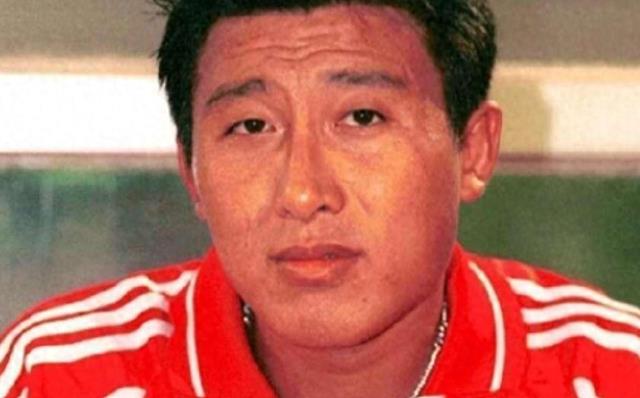
Born in Dalian, a city brimming with passion for football, Zhang Enhua was like a small planet drawn to the gravitational pull of football. As a child, he was full of energy whenever he stepped onto the green field. Back then, he was a little star among his peers. The coaches at Dalian Sports School had sharp eyes and spotted him immediately among the children in the youth team. This young man, with his dark skin and sturdy body like a calf, ran around the field like a cannonball, constantly charging forward. Every time he scored a goal, he would excitedly run around the field, grinning widely to reveal his set of white teeth, which was so adorable that it made the coaches laugh heartily. That's how he got the nickname "Blackie." He smoothly entered the sports school, and everyone knew this kid was destined for greatness.
In 1994, Zhang Enhua embarked on his journey with the Dalian Wanda team. Playing as a central defender, he trained tirelessly, much like an indefatigable craftsman meticulously sculpting his masterpiece. He quickly established himself in the team's defensive line. It's worth noting that Dalian Wanda was a formidable force, winning the Jia-A League championship as easily as a daily routine, and Zhang Enhua, through his efforts, became a starting player. The team won the league title eight times, with Zhang Enhua contributing to seven of them. He was like a solid fortress for Wanda, with every defense being unbreakable, truly earning him great credit for the team's consecutive championships.
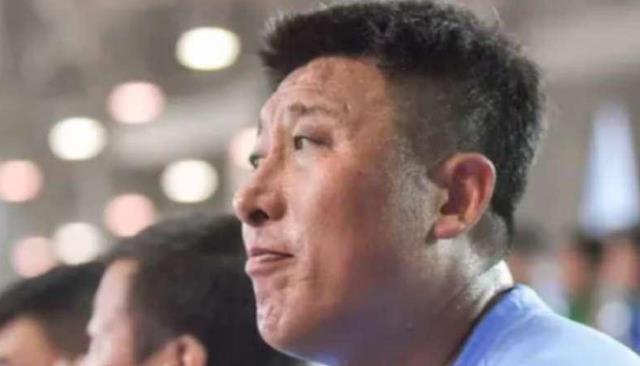
However, Chinese football has always been like a primary school student on the global stage, always falling short of others. For players like Zhang Enhua, this must have been a source of frustration. Zhang Enhua was well aware that while he performed well in domestic leagues, he was still far behind foreign teams. He was like a young explorer yearning to venture out into the world, eager to see advanced techniques and understand where he fell short to catch up.
At this point, both the English First Division's Grimsby Town and the Premier League's Newcastle United took notice of him and wanted to loan him. These were two excellent opportunities. But Zhang Enhua, like a shrewd businessman, weighed his options. The Premier League, with its fame and bright prospects, had a dauntingly long trial period. He thought that if he went there, he might not even make the starting lineup at first, and the lengthy trial period could be exhausting. In comparison, the First Division, though slightly inferior, offered immediate playing opportunities. After careful consideration, he decisively chose Grimsby Town of the First Division.

Then, he embarked on this three-month journey abroad. Upon arriving at the First Division arena, Zhang Enhua was like a dazzling gem that suddenly appeared, instantly capturing everyone's attention. His performance on the field was outstanding; he played a total of 17 games and scored 3 goals, even being named the best player twice. His physical prowess was remarkable, especially his headers, which were as precise as cannonballs, making goalkeepers fear his aerial attacks. The First Division fans cherished him, cheering for him every time he was on the field. He thus earned the nickname "Chinese Great Wall." Grimsby Town held him in high regard, offering him the highest salary package, and his large photo even graced the cover of "Football Weekly."
In 2001, Zhang Enhua returned from Grimsby Town to Dalian Shide, which was actually the former Dalian Wanda team he had played for. He continued to shine upon his return, and his performance did not go unnoticed by the General Administration of Sport, who deemed him exceptional and selected him as captain of the national team. This was akin to giving him a larger stage where he would bear greater responsibilities.

However, football players are like dancers walking on a tightrope, prone to injuries. Zhang Enhua was no exception. After years of battles, his body was like an old car, riddled with injuries. These injuries slowly eroded his form, and his on-field performance was not as good as before. Later, he also played for Tianjin Teda and Hong Kong South China. However, injuries were like an inescapable shadow, preventing him from becoming a regular starter. He understood in his heart that he had passed his peak as an athlete and it was time to leave.
Unlike other players of his era who may have retired with fanfare, Zhang Enhua quietly bid farewell to the field. However, his love for football burned like a flame that never extinguished. Despite his physical injuries, the wealth of experience he accumulated over the years was invaluable. He aspired to become a coach and contribute to nurturing a new generation of Chinese football players.
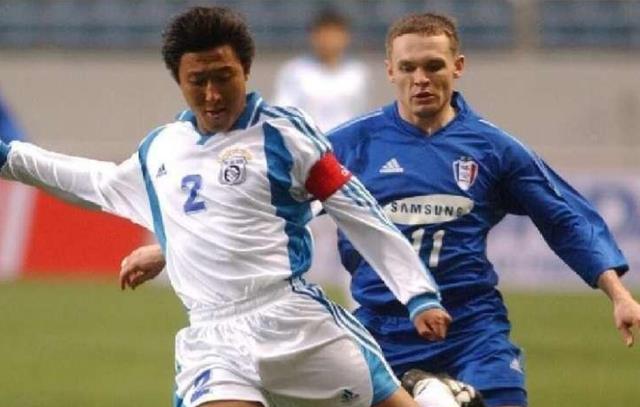
Like a thirsty scholar, he traveled to Europe to systematically study professional coaching courses. The advanced football tactical systems in Europe were like a treasure trove waiting for him to explore. He studied diligently there and eventually obtained a B-level coaching certificate. After obtaining the certificate, he interned with multiple European teams, serving as an assistant coach to accumulate more experience.
During his time in Europe, several foreign teams took notice of him and wanted to sign coaching contracts with him. They offered him attractive conditions with generous salaries. If it were someone else, they might have been tempted. But Zhang Enhua was different; he was like a tree deeply rooted in his homeland, with his heart always oriented towards his motherland. After completing his studies, he returned home without hesitation.
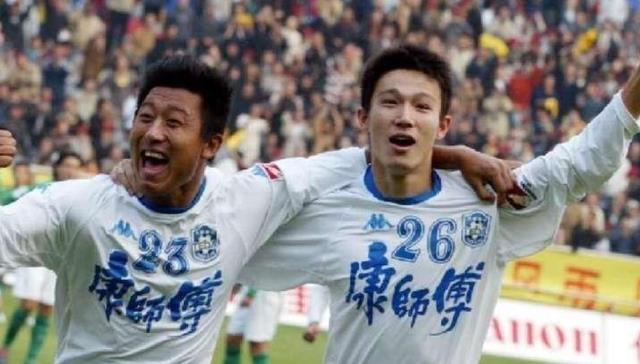
Upon returning to China, he was like an enthusiastic older brother, always finding ways to help Chinese players adapt quickly to European tactical systems. He was also frequently invited to serve as a commentator or host for football matches. His dream was grand—to give Chinese football a place on the world stage.
However, the current level of Chinese men's football is still significantly behind world-class teams. We can't even defeat some strong Asian teams, and every loss disappoints the fans. This must have been painful for Zhang Enhua. It's like watching a child you've raised fail repeatedly; the sense of powerlessness is indescribable.
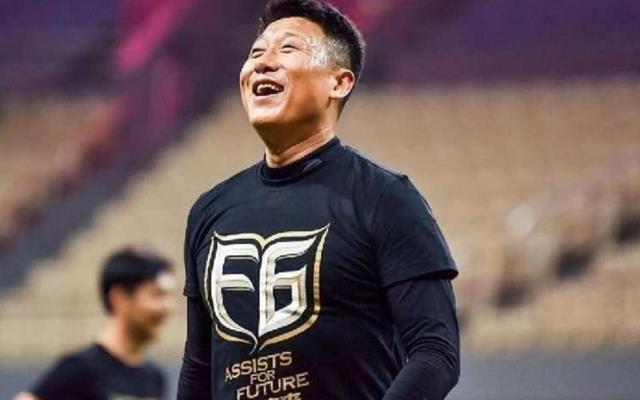
During the 2019 Asian Cup match between China and Iran, Zhang Enhua was on-site as a commentator. Witnessing China's 0-3 defeat to Iran, the scene was utterly embarrassing. Sitting in the commentary booth, Zhang Enhua was anxious like an ant on a hot pot, with red-rimmed eyes and tears streaming down his face. It was a heartbreaking sight.
Later, he devoted all his energy to the daily training of China's national youth team. He also frequently visited amateur teams to guide friends who shared his passion for football. He was like a zealous missionary, firmly believing that "Chinese football needs to start cultivating the new generation to turn things around." He remained confident about the future of football.

Zhang Enhua lived a happy life. His wife was particularly gentle and considerate, always silently supporting his love for football no matter what challenges he faced outside. They had two lovely children. Moreover, he had a group of like-minded friends who were like family, often sharing the ups and downs of life together.
On April 29, 2021, his 48th birthday, his wife organized a particularly lively birthday party for him. Many brothers and friends who had known him for years came. That day, he was very happy and excitedly posted a message on his social media saying, "Grateful for having you." Judging from the photos, his face was filled with a happy smile, and everyone felt the warmth of the birthday gathering.
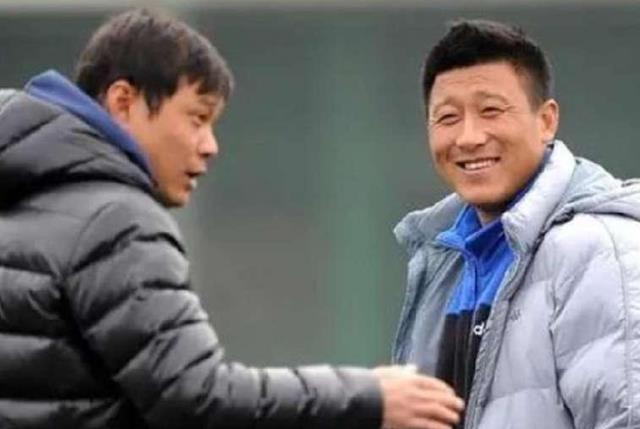
But who could have expected that this was a sad omen? During the party, everyone was like brothers, drinking without restraint. Zhang Enhua seemed fine, and even after the party ended, he was reluctant to let his friends go, planning to gather again soon.
Who knew that later that evening, he suddenly started experiencing severe chest pain. His wife, seeing him in distress, assumed it was due to excessive drinking and a hangover that hadn't worn off. She gave him some warm water and went out to find a cure for the hangover. But when she returned, Zhang Enhua had already fallen into a coma and never regained consciousness.

This news was like a bombshell that exploded in the circle of Chinese football fans. Online, there were posts everywhere saying "Farewell Blackie," with everyone reminiscing about the young man who used to run vigorously on the field, his hopeful face etched in everyone's hearts.
Zhang Enhua has left us, too suddenly. But his unwavering belief in Chinese football, like a seed, has been planted in the hearts of every football lover in China. I believe that under the inspiration of his spirit, more dedicated individuals will dedicate themselves to the cause of Chinese football. Just as he always dreamed, one day, Chinese football will truly rise and shine on the world stage. "Blackie," may you rest in peace, forever living in our hearts.
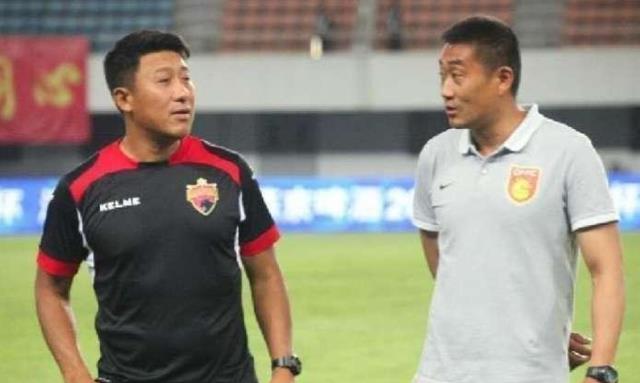
The road to the development of Chinese football is still long, but with the guidance of people like Zhang Enhua, who loved football and dedicated their lives to it, we have reason to believe that there will always be hope on the horizon. No one who loves Chinese football should forget him; his story should be passed down from generation to generation among players and fans, inspiring everyone to keep moving forward.
Zhang Enhua's life was like a magnificent yet regrettable football epic. He grew from a child who loved football to a star of Chinese football, ventured abroad, and left his mark on various stages. His post-retirement life was also filled with